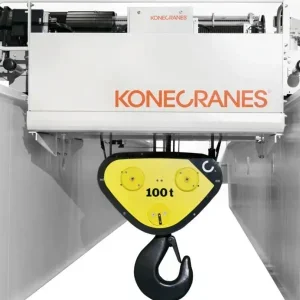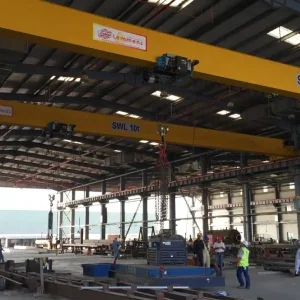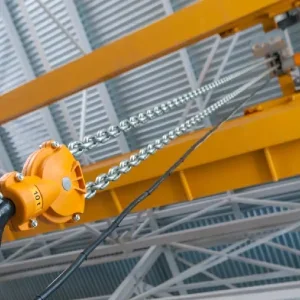US crane manufacturers have joined forces with the National Commission for the Certification of Crane Operators (NCCCO) to develop a certification programme for overhead crane operators. The certification programme could be available as soon as spring 2004, according to NCCCO executive director Graham Brent.
Until now, the NCCCO’s remit has been solely mobile cranes, with more than 11,000 mobile crane operators becoming certified since the programme began in 1996. Now the NCCCO is developing certification programmes for operators of tower cranes as well as overhead cranes.
For the overhead crane programme, the Crane Manufacturers Association of America (CMAA) has got involved, providing seedcorn funding as well as expertise. “The NCCCO and CMAA share many mutual goals, notably providing employers with a fair and independent method of verifying operator qualifications, and making the work place safer and more productive for all employees,” said CMAA managing director Hal Vandiver.
Two years ago, the CMAA published a 29-page manual for overhead crane operators. According to Vandiver, the CMAA’s service committee had already been considering organising an operator certification programme when it was approached by the NCCCO.
CMAA representatives are taking significant places in the task force responsible for developing the certification programme. Pete Kerrick, chairman of the CMAA’s crane manufacturers service committee and vice president of Morris Materials Handling Inc, is co-chairman of the overhead crane task force. The other co-chairman is John Alexander of Texas-based crane inspection company Cranetex. The task force will meet five times this year, with the first meeting in April.
The certification programme will include psychometric testing, as does the mobile crane operator certification programme. “All elements of the new programmes will be developed according to the strict psychometric standards that have been a hallmark of the mobile crane operator programme, thus ensuring the certification process will be valid, reliable, and legally defensible,” said Kerry Hulse, chairman of the NCCCO commissioners and operations manager with Deep South Crane & Rigging.
The standard might include written, practical and medical examinations, work experience and a requirement for recertification. The task force will consider whether to include cranes with single or double girders, those operated by cab or pendant, those that are top-running or underhung, hoists, monorail systems and gantry cranes.
NCCCO president Ron Schad, also president of Essex Crane Rental, said: “The success of NCCCO’s certification programme for mobile crane operators has led to sustained industry requests for similar programmes to address operators of other types of equipment. Given the widespread adoption of its mobile crane programme, and the endorsements it has garnered, NCCCO is the appropriate entity to develop and administer these new programmes.”






